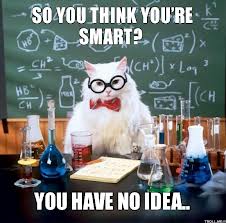Throughout the semester, the topic of my blog and the way I planned to structure my research paper changed drastically. I first was going to use examples of famous people who defy the normal stereotypes laid upon them. I believed that this would have helped the reader relate to the topic, as well as get an insight into the purpose of my overall thesis. But as time went by the topic of my blog shifted towards the scientific aspect of stereotype, and how nurture and nature affect the way we stenotype individuals. At the end, my research paper was half about the problems that stereotype causes, such as being ignorant to the different cultures we interact with every day, and half about a solution. The solution was based on the education system and curriculum not evolving even after we have evolved with new technology that connects us to the world and different cultures. The main issue in my paper was that the curriculum should entail information about the world instead of just about the culture of America.
In class I learned to incorporate a contradictory point in my essay, and proving it wrong. This not only helps add information to the paper, but it helped make my point a lot more strong. At first it was hard to do so, because my adding a point that goes against my thesis I felt as if I was tearing down my point. Yet through our discussions in class, I was able to write a paragraph in my paper about the common misconception and concern the reader might have with my solution, and use it to prove that my thesis was correct, and my solution should be implemented.
While writing the blogs and my final paper, I learned that there are different ways I can fight out a point, and make my thesis stronger. For some reason I always believed there was a certain format I had to use for my papers in order to prove my point, yet with the openness and the freedom that this paper gave us, i was able to explore different writing methods, and different ways of strengthening my thesis. I related most to the lesson on counter arguments. For some reason I had never thought that a point arguing against my thesis would actually help me make my thesis stronger. It was something new I had learned, and I actually enjoyed writing my counter argument.


